Writing From Scratch #9
Writing from Scratch #9
Complex Plots, Part 2: Modifying Plots
The second way we’ll try complicating a plot is through plot modifiers. This happens when a try-fail cycle not only furthers the solution of one plot-problem but spawns a new plot-problem. What these plots actually modify are the stakes. They can give far-off worst-case scenarios more immediacy, which is what the plot analysis we’ll be getting into today does. Or they can show clear examples of what’s at stake for more abstract cases (think of Gollum in The Lord of the Rings clarifies our fears for what could happen to Frodo).
How does this work? Let’s look back at the plot analysis I did for The Expanse, Season 1 Episode 2, “The Big Empty.” A brief recap:
The Background: The Knight, a small, rickety life-boat sized spaceship with 5 survivors is all that’s left of the Canterbury after an attack on the larger vessel.
The Problem: The Knight’s radio is dead.
Read more on WordPress
More Posts from Feralpaules and Others
Writing from Scratch # 11: Compound Plots, Part 1
Compound Plots, Part 1: Episodes
Like complex plots, compound plots have two or more plots put together, but unlike complex plots, in compound plots, the plots can be split apart and still work as a Complete Thought.
The first way to compound plots that we’ll go over is via episodes. So, we first we need to straighten out some terminology. There is a current trend in storytelling that could be called anti-episodic (there are pockets where this is not as much the case, like crime and mystery books and television); instead what’s really popular is “serialized” storytelling. What people generally mean when they talk about episodic versus serialized storytelling is that an episodic style has a different unconnected, self-contained plot every episode or book and that a serialized style has every episode or book contributing to one very large season or series spanning plot. As with most any binary, what we’re actually looking at is a spectrum – Harry Potter has a self-contained plot with every novel, but overall, every novel contributes to the plot of Voldemort’s resurrection and final death.
Supernatural is a really interesting case study because it lasted so long and it started before the anti-episodic trend took hold. So, you can see the early seasons, especially the first season, very firmly on the episodic side of the spectrum with its monster of the week format and it slowly became more and more serialized to the point where an unrelated monster of the week was anomalous and generally warranted some kind of in episode commentary by a character.
When I talk about episodic compound plots, I’m kind of talking about this idea, but it’s squares and rectangles. Or maybe squares and quadrilaterals. What I’m talking about is that one plot-problem will be solved, and then another plot-problem will arise. What the episodic-serialized debate is talking about is the causal relationship between those plot-problems. There are some serialized series that do not have episodic compound plots, but most of them do.
Continue Reading on WordPress
Writing from Scratch #8
Now that we have gone over the four simple plot-problems (1, 2, 3, 4) and how they are solved through try-fail cycles, we’ll take a look at how to make complex, compound, and compound-complex plots through the same devices as sentence creation.
The first way we’ll try complicating a plot is by making the solution of the first noted plot-problem dependent on the solution of a second plot-problem, which stands in for easy solution prevention. We’re typically going to use dependent plots to strengthen audience satisfaction when the character is finally able to succeed. Or, like in the case-study we’ll look at today, they can be used to draw what appeared to be disparate plots together in longer works.
Read more on WordPress
Writing from Scratch #1
Welcome to Writing from Scratch!
I’ve been writing a long time, and sometimes it feels like I lose the trees for the forest. Writing from Scratch is a chance for me (and you!) to get back to the basics of storytelling.
If you’ve never written a story before, if you’ve never felt like you could come up with one that would be worth writing, my hope is that if you follow along with me here, you will have the confidence and know-how to come up with an idea, build it into a story, and share it with the world.
These posts will be little, easy-to-digest nuggets. At the end of every post, look for a prompt and share your response in the comments!
What Is a Story?
A story can be defined by what it contains: at least one plot, character, and setting, and a style through which it is told.
Story Bits
To begin, let’s take a look at the second smallest unit of a story – the sentence. A sentence is a set of words that conveys a complete thought. And communication is fractal, meaning each part shares the same pattern as the whole. A story and its components, therefore, will also convey a Complete Thought.
Continue Reading on WordPress
On Liking Stuff (or not)
So, back when Ancillary Justice was essentially sweeping that year’s SF awards, there was some talk from certain quarters about it not really being all that, people only claimed to like it because Politics and SJWs and PC points and Affirmative Action and nobody was really reading the book and if they were they didn’t really enjoy it, they just claimed they did so they could seem cool and woke.
My feelings were so hurt that I wept bitter, miserable tears every time I drove to the bank with my royalty checks. I mean, those people must be right, it’s totally typical for non-fans who don’t actually like a book to write fanfic or draw fan art, totally boringly normal for students to choose to write papers about a book that just isn’t really very good or interesting, and for professors to use that boringly not-very-good book in their courses, and for that book to continue to sell steadily five years after it came out. I totally did not laugh out loud whenever I came across such assertions, because they were absolutely not ridiculous Sour Grape Vineyards tended by folks who, for the most part, hadn’t even read the book.
Now I am sorry–but not surprised–to see some folks making similar assertions about N.K. Jemisin’s historic (and entirely deserved) Hugo Threepeat. Most of them haven’t read the books in question.
But some of them have. Some of them have indeed read the books and not understood why so many people are so excited by them.
Now, Nora doesn’t need me to defend her, and she doesn’t need lessons from me about the best way to dry a tear-soaked award-dusting cloth, or the best brands of chocolate ice cream to fortify yourself for that arduous trip to the bank. Actually, she could probably give me some pointers.
But I have some thoughts about the idea that, because you (generic you) didn’t like a work, that must mean folks who say they did like it are Lying Liars Who Lie to Look Cool.
So, in order to believe this, one has to believe that A) one’s own taste is infallible and objective and thus universally shared and B) people who openly don’t share your taste are characterless sheep who will do anything to seem cool.
But the fact is, one doesn’t like or dislike things without context. We are all of us judging things from our own point of view, not some disembodied perfectly objective nowhere. It’s really easy to assume that our context is The Context–to not even see that there’s a context at all, it’s just How Things Are. But you are always seeing things from the perspective of your experiences, your biases, your expectations of how things work. Those may not match other people’s.
Of course, if you’re in a certain category–if you’re a guy, if you’re White, if you’re straight, if you’re cis–our society is set up to make that invisible, to encourage you in the assumption that the way you see things is objective and right, and not just a product of that very society. Nearly all of the readily available entertainment is catering to you, nearly all of it accepts and reinforces the status quo. If you’ve never questioned that, it can seem utterly baffling that people can claim to enjoy things that you see no value in. You’ll maybe think it makes sense to assume that such people are only pretending to like those things, or only like them for reasons you consider unworthy. It might not ever occur to you that some folks are just reading from a different context–sometimes slightly different, sometimes radically different, but even a small difference can be enough to make a work seem strange or bafflingly flat.
Now, I’m sure that there are people somewhere at some time who have in fact claimed to like a thing they didn’t, just for cool points. People will on occasion do all kinds of ill-advised or bananapants things. But enough of them to show up on every SF award shortlist that year? Enough to vote for a historic, record-breaking three Hugos in a row? Really?
Stop and think about what you’re saying when you say this. Stop and think about who you’re not saying it about.
You might not have the context to see what a writer is doing. When you don’t have the context, so much is invisible. You can only see patterns that match what you already know.*
Of course, you’re not a helpless victim of your context–you can change it, by reading other things and listening to various conversations. Maybe you don’t want to do that work, which, ok? But maybe a lot of other folks have indeed been doing that, and their context, the position they’re reading stories from, has shifted over the last several years. It’s a thing that can happen.
Stop and think–you’ve gotten as far as “everyone must be kind of like me” and stepped over into “therefore they can’t really like what they say they like because I don’t like those things.” Try on “therefore they must really mean it when they say they like something, because I mean it when I say it.” It’s funny, isn’t it, that so many folks step into the one and not the other. Maybe ask yourself why that is.
This also applies to “pretentious” writing. “That writer is only trying to look smart! Readers who say they like it are only trying to look smarter that me, a genuine,honest person, who only likes down-to-earth plain solid storytelling.” Friend, your claims to be a better and more honest person because of your distaste for “pretentious” writing is pretension itself, and says far more about you than the work you criticize this way. You are exactly the sort of snob you decry, and you have just announced this to the world.
Like or don’t like. No worries. It’s not a contest, there’s no moral value attached to liking or not liking a thing. Hell, there are highly-regarded things I dislike, or don’t see the appeal of! There are things I love that lots of other folks don’t like at all. That’s life.
And sure, if you want to, talk about why you do or don’t like a thing. That’s super interesting, and thoughtful criticism is good for art.
But think twice before you sneer at what other folks like, think three times before you declare that no one could really like a thing so it must be political correctness, or pretension, or whatever. Consider the possibility that whatever it is is just not your thing. Consider the possibility that it might be all right if not everything is aimed at you. Consider that you might not actually be the center of the universe, and your opinions and tastes might not be the product of your utterly rational objective view of the world. Consider the possibility that a given work might not have been written just for you, but for a bunch of other people who’ve been waiting for it, maybe for a long time, and that might just possibly be okay.
____ *Kind of like the way some folks insist my Ancillary trilogy is obviously strongly influenced by Iain Banks (who I’d read very little of, and that after AJ was already under way) and very few critics bring up the influence of C.J. Cherryh (definitely there, deliberate, and there are several explicit hat tips to her work in the text). Those folks have read Banks, but they haven’t read Cherryh. They see something that isn’t there, and don’t see what is there, because they don’t have the same reading history I do. It’s interesting to me how many folks assume I must have the same reading history as they do. It’s interesting to me how sure they are of their conclusions.
(Crossposted from https://www.annleckie.com/2018/08/27/on-liking-stuff-or-not/)
Structuring a Series: Part II
Structuring a Series: Part II: Extrapolating Complete Episodes from the Trilogy #writerslife
Welcome back! If you haven’t checked out Part I already, go ahead and do that; we’ll be right here when you get back. Extrapolating Complete Episodes from the Trilogy (more…)
View On WordPress
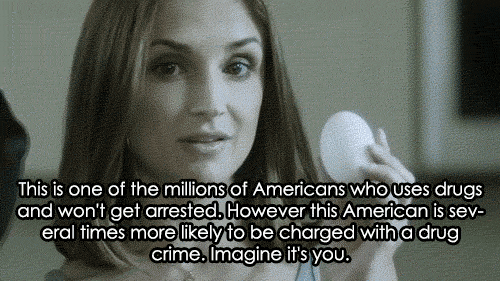
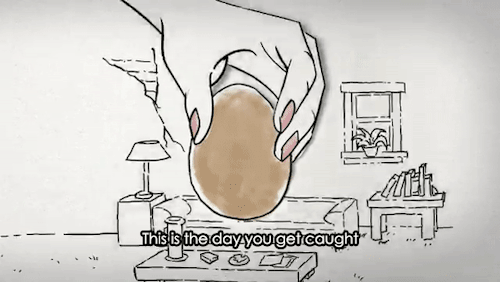
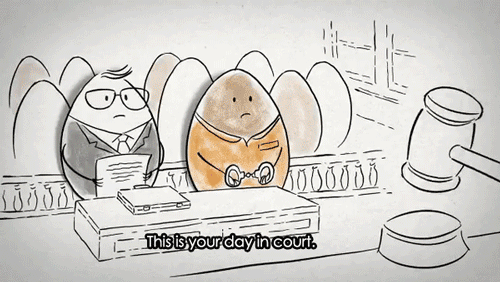
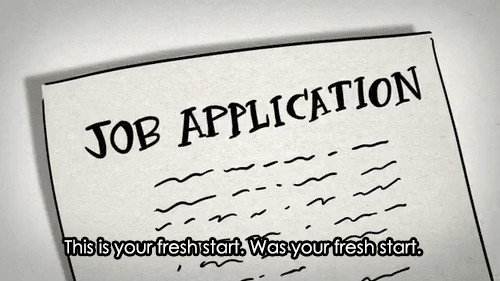
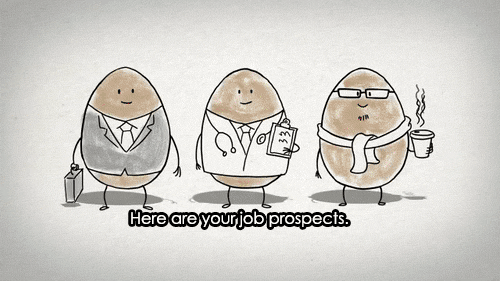
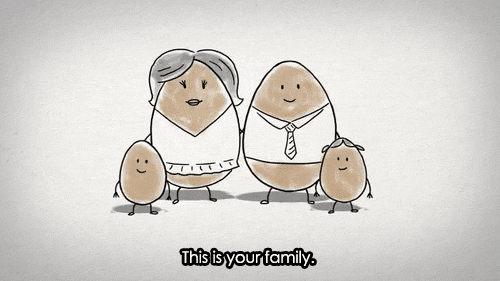
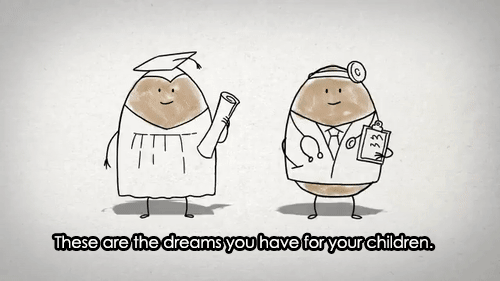
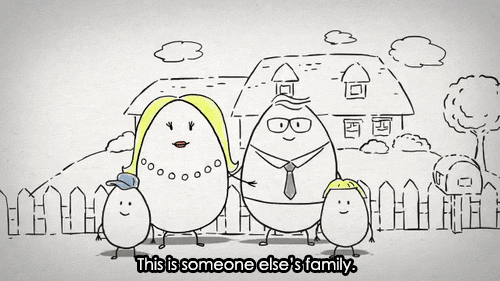
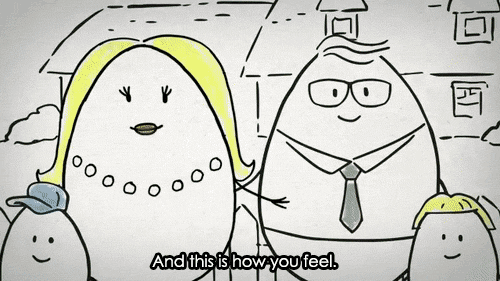


The war on drugs is rooted in racist policies . The failure of the war and drugs is obvious. We need to find a better solution, because people of color should never be the victims of racist policies. White Americans are more likely than black Americans to have used most kinds of illegal drugs, including cocaine and LSD. Yet blacks are far more likely to go to prison for marijuana, which is not a hard drug. Moreover , even when white people get caught , they get less time in prison.
Review of The Dresden Files: Peace Talks (spoilers ahead)
This review is gonna be slightly different than my normal reviews as I am the only Paules Sibling of Awesome who reads The Dresden Files, so I have not talked through my thoughts with B beforehand. I also don’t see the necessity of providing a rating for a book that is the sixteenth in a series (not counting the short story collections) - clearly I enjoy the books. Spoilers ahead!
So, the peace talks in question went about as disastrously as expected knowing Harry Dresden was involved, but obviously I didn’t expect that. Years ago, Jim Butcher promised us an apocalyptic trilogy to end the series (titled Stars and Stones, Hell’s Bells, and Empty Night, in case you missed it), but I never figured we’d actually get to a point where that ending seems in sight.
My big fear going into this was that Karrin Murphy would not survive. I was pleased to see that a) she did and b) she was as badass as ever, despite her injuries from Skin Game. Of course, who knows what will happen in Battle Ground, but really my only hope is that Murphy makes it to the end of the series. Just Murphy and Harry at the end of things, just as they were at the beginning.
Continue Reading on WordPress
Underlined PSA
Figment, the recently closed writing website, has just launched (after a long delay) their long-awaited successor to figment known as Underlined, where users can post their work and receive feedback, supposedly.
DO NOT USE UNDERLINED. DO NOT POST YOUR WORK ON UNDERLINED.
Underlined’s terms and conditions contains a clause stating that the rights to all your work that you post on their website belongs to them!!!!
Underlined belongs to Penguin Random House. This is an extremely dirty trick for them to play on writers, especially young writers and children, who come to the internet to get feedback and will lose the rights to their work. Please boost!!!
Writing from Scratch #9: Complex Plots, Part 2
Writing from Scratch #9: Complex Plots, Part 2. Writing from Scratch is a weekly blog series that takes writing back to the basics. #writing #writingadvice
Writing from Scratch is a weekly blog series that takes writing back to the basics. Each week we’ll build on what we’ve learned before to craft our stories.
Go to index. Go to first post. Go to previous post.
Complex Plots, Part 2: Modifying Plots
The second way we’ll try complicating a plot is through plot modifiers. This happens when a try-fail cycle not only furthers the solution of…
View On WordPress
-
 abfoeknfoa liked this · 4 years ago
abfoeknfoa liked this · 4 years ago -
 theferalcollection reblogged this · 4 years ago
theferalcollection reblogged this · 4 years ago -
 feralpaules reblogged this · 4 years ago
feralpaules reblogged this · 4 years ago -
 theferalcollection reblogged this · 4 years ago
theferalcollection reblogged this · 4 years ago -
 feralpaules reblogged this · 4 years ago
feralpaules reblogged this · 4 years ago
check out my main blog www.theferalcollection.wordpress.com and find fandoms and funstuff on www.theferalcollection.tumblr.com
103 posts